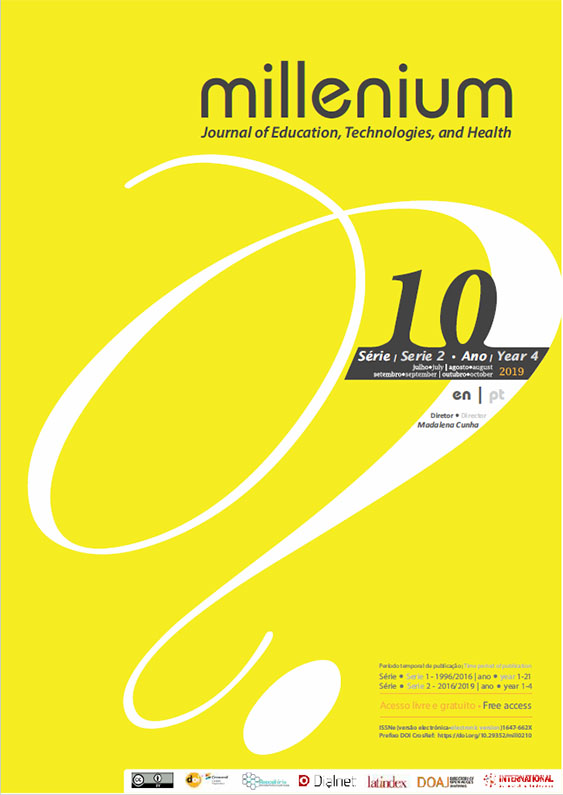Teaching with strategic games: an interdisciplinary study with “Electric Field Hockey”
DOI:
https://doi.org/10.29352/mill0210.07.00253Keywords:
Strategic games, Electric Field Hockey, Physics, SportAbstract
Introduction: Physics deal with abstract phenomenon that present some difficulty for students. Sport is an important bridge to link Physics concepts to known phenomena. Using games to learn has grown into a major focus of research over the last decade and provides a mechanism to immerse students in the study of strategic games and complex scientific concepts.
Objectives: The purpose of this study was to study the interdisciplinarity among Physics and Sport, using the simulation computer game “Electric Field Hockey” when compared to traditional classroom methods.
Methods: This study included 91 students: a control group (N=32), where traditional inquiry-based learning experiences were implemented and an experimental group (N=59) that plays “Electric Field Hockey”.
Results: Results of this study show that games can lead to positive learning outcomes, as demonstrated by the increase in test scores from pre- to post-assessment and the student interviews.
Conclusion: This study also suggests that a complementary approach, in which video games and hands-on activities are integrated, with each activity informing the other, could be a very powerful technique for supporting student scientific understanding. Further, our findings suggest that game designers should embed metacognitive activities such as reflective opportunities into educational video games in order to provide scaffolds for students and to reinforce that they are engaged in an educational learning experience.
Downloads
References
Adams, W., Reid, S., LeMaster, R., McKagan, S., Perkins, K., Dubson, M., & Wieman, C. (2008). A study of educational simulations. Part I - Engagement and learning. Journal of Interactive Learning Research, 19, 397.
Bjælde, O., Pedersen, M., & Sherson, J. (2014). Gamification of Quantum Mechanics Teaching. World Conference on E-Learning in Corporate, Government, Healthcare, and Higher Education, 218-222.
Bork, A. (1981). Learning with Computers. Digital Press: Massachusetts.
Clement, J. (2008). Creative model construction in scientists and students: the role of imagery, analogy, and mental simulation. Amherst, MA: Springer.
Garris, R., Ahlers, R., & Driskell, J. (2002). Games, motivation, and learning: A research and practice model. Simulation & Gaming, 33(4), 441–467.
McCloskey, M. (1983). Intuitive Physics. Scientific American, 249, 114-117.
McDermott, L. (1984). Research on conceptual understanding in Mechanics. Physics Today, 37, 24-31.
Miller, A. (2000). Insights of Genius: Imagery and Creativity. Science and Art. MIT Press: New York.
PhET (2018). “Electric Field Hockey”. Retrieved from: https://phet.colorado.edu/en/simulation/electric-hockey .
Downloads
Published
How to Cite
Issue
Section
License
Authors who submit proposals for this journal agree to the following terms:
a) Articles are published under the Licença Creative Commons (CC BY 4.0), in full open-access, without any cost or fees of any kind to the author or the reader;
b) The authors retain copyright and grant the journal right of first publication, allowing the free sharing of work, provided it is correctly attributed the authorship and initial publication in this journal;
c) The authors are permitted to take on additional contracts separately for non-exclusive distribution of the version of the work published in this journal (eg, post it to an institutional repository or as a book), with an acknowledgment of its initial publication in this journal;
d) Authors are permitted and encouraged to publish and distribute their work online (eg, in institutional repositories or on their website) as it can lead to productive exchanges, as well as increase the impact and citation of published work
Documents required for submission
Article template (Editable format)





